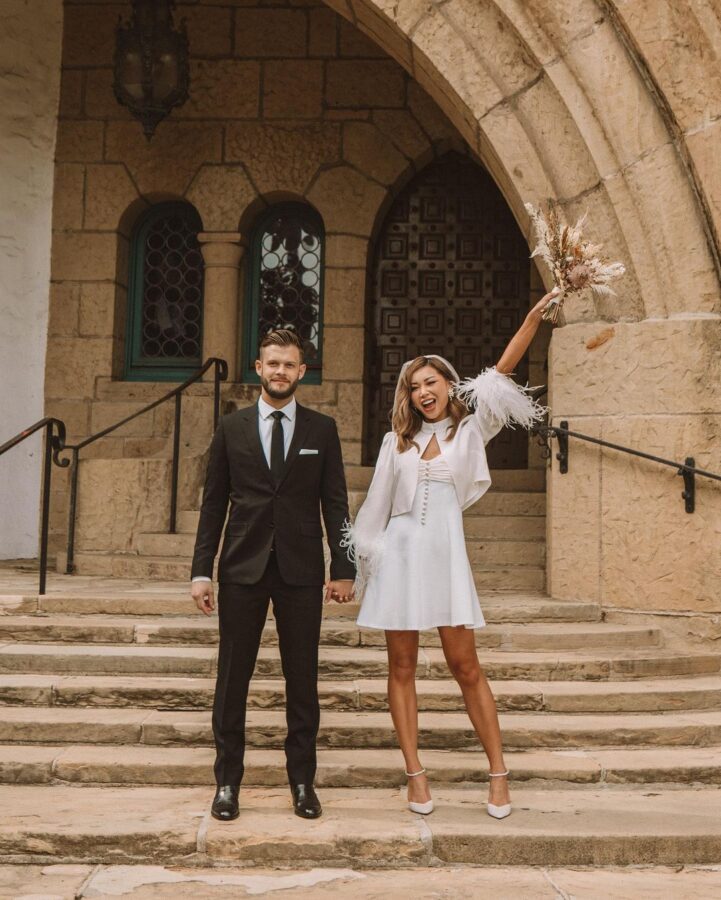Courthouse Weddings: A Practical Guide to Saying “I Do” Without the Fuss
If you’re dreaming of marriage but want to avoid the exorbitant costs and intricate planning of a traditional wedding, a courthouse wedding offers an excellent alternative. Also known as a civil wedding or civil ceremony, a courthouse wedding involves some upfront preparation, ensuring your special day goes off without a hitch. Here’s everything you need to know to plan a courthouse wedding that’s simple, elegant, and hassle-free.
What to Know About Courthouse Weddings
A courthouse wedding is a secular ceremony that grants you the legal recognition of marriage. Unlike religious ceremonies, these weddings are officiated by legal authorities such as judges or court clerks. If you’re considering a marriage-based visa or green card, a courthouse wedding is beneficial as it creates an official record of your marriage through a marriage certificate.
Here are some key points about the marriage certificate:
- It’s essential for obtaining lawful U.S. residency to prove your legal marriage.
- The certificate must be issued by an official government agency, like your local county clerk’s office.
- Distinguish between a marriage license (the application to marry) and a certificate (proof of marriage).
- You sign the license after the ceremony, and the officiant submits it, resulting in the issuance of your marriage certificate.
Planning Your Courthouse Wedding: A Step-by-Step Guide
1. Choose Your Location
The first step is selecting where to tie the knot. Some prefer their hometown, but other options are available. Research local regulations since they vary by state. Your ceremony might not take place in an actual courthouse; it could be at city hall or even a Las Vegas wedding chapel, depending on your preferences and location offerings.
2. Apply for Your Marriage License
Once you’ve chosen a location, apply for your marriage license. Requirements differ by state, but generally, both partners need:
- Government-issued photo ID (driver’s license, passport, etc.).
- Divorce papers if applicable.
- Payment for the license (prices vary).
- Be aware of license expiration and potential waiting periods between issuance and the wedding date.
3. Gather Your Essentials
Create a packet containing necessary paperwork: marriage license, identification, payment, and a witness (usually over 18). Some courthouses require one witness, others two. Ensure your paperwork is complete before the big day.
4. Plan Your Day
Personalize your wedding ceremony despite its simplicity:
- Choose attire that suits your style.
- Verify guest capacity; some courthouses allow few guests.
- Confirm whether photography and videography are permitted.
5. Decide on Post-Ceremony Celebrations
Since courthouse weddings are brief, plan what follows:
- Head straight to your honeymoon.
- Have a quiet reception or a larger party with loved ones.
- Make the day uniquely yours.
Conclusion
A courthouse wedding offers a pragmatic and charming way to embark on your marital journey without the overwhelming complexities of a traditional wedding. By following these steps, you can ensure a smooth and joyous celebration of your love. It’s your day—so go ahead and say “I do” in a way that feels right for you and your partner.
FAQs About Courthouse Weddings
1. How much does a courthouse wedding cost? Courthouse wedding costs vary by location and requirements, but they generally offer a budget-friendly option compared to traditional weddings.
2. Can we personalize our courthouse wedding? Absolutely! Despite its simplicity, you can personalize your attire, ceremony, and post-wedding celebrations to reflect your style and preferences.
3. Is a courthouse wedding legally valid for immigration purposes? Yes, a courthouse wedding creates an official record of your marriage through a marriage certificate, which can be beneficial for marriage-based visas or green cards.
4. How long does a courthouse wedding ceremony typically last? Courthouse wedding ceremonies are usually brief, often taking less than 20 minutes to complete.
5. Can we have guests at our courthouse wedding? Yes, most courthouses allow a limited number of guests. Be sure to inquire about guest capacity when planning your ceremony.


